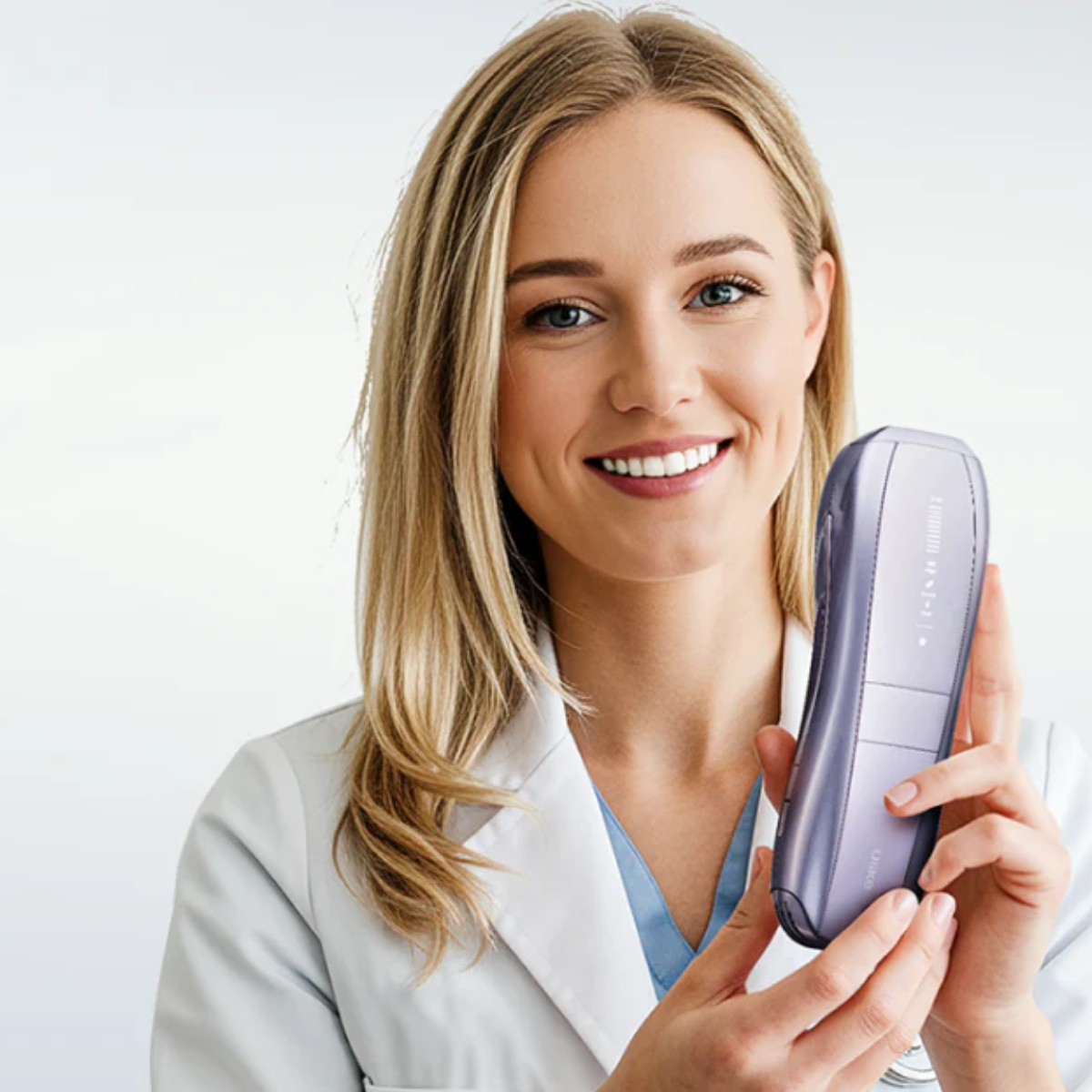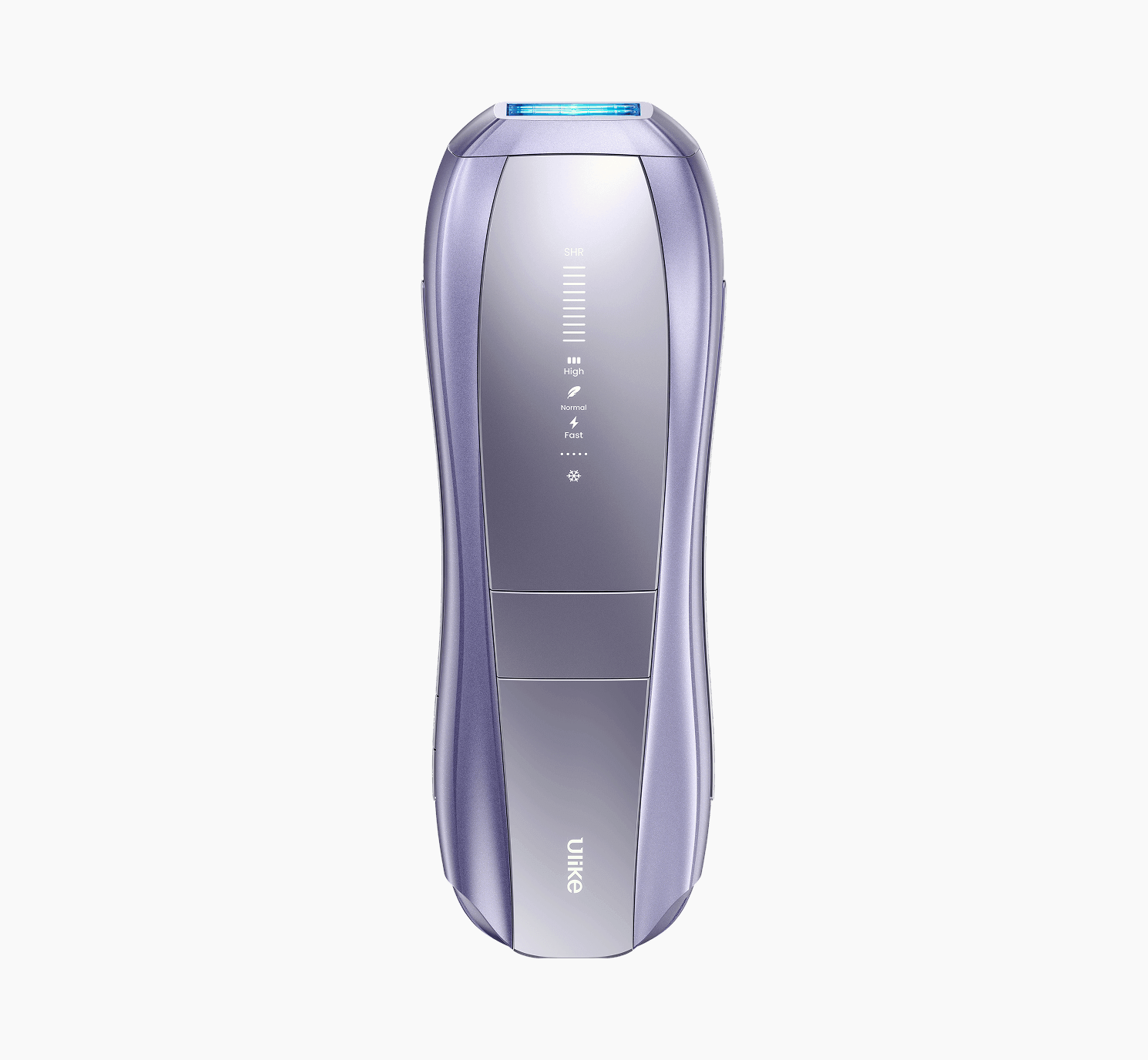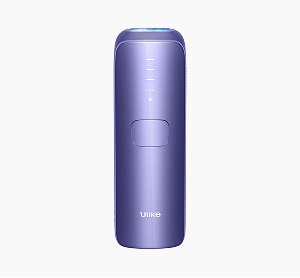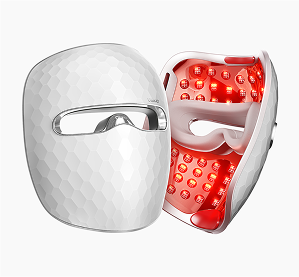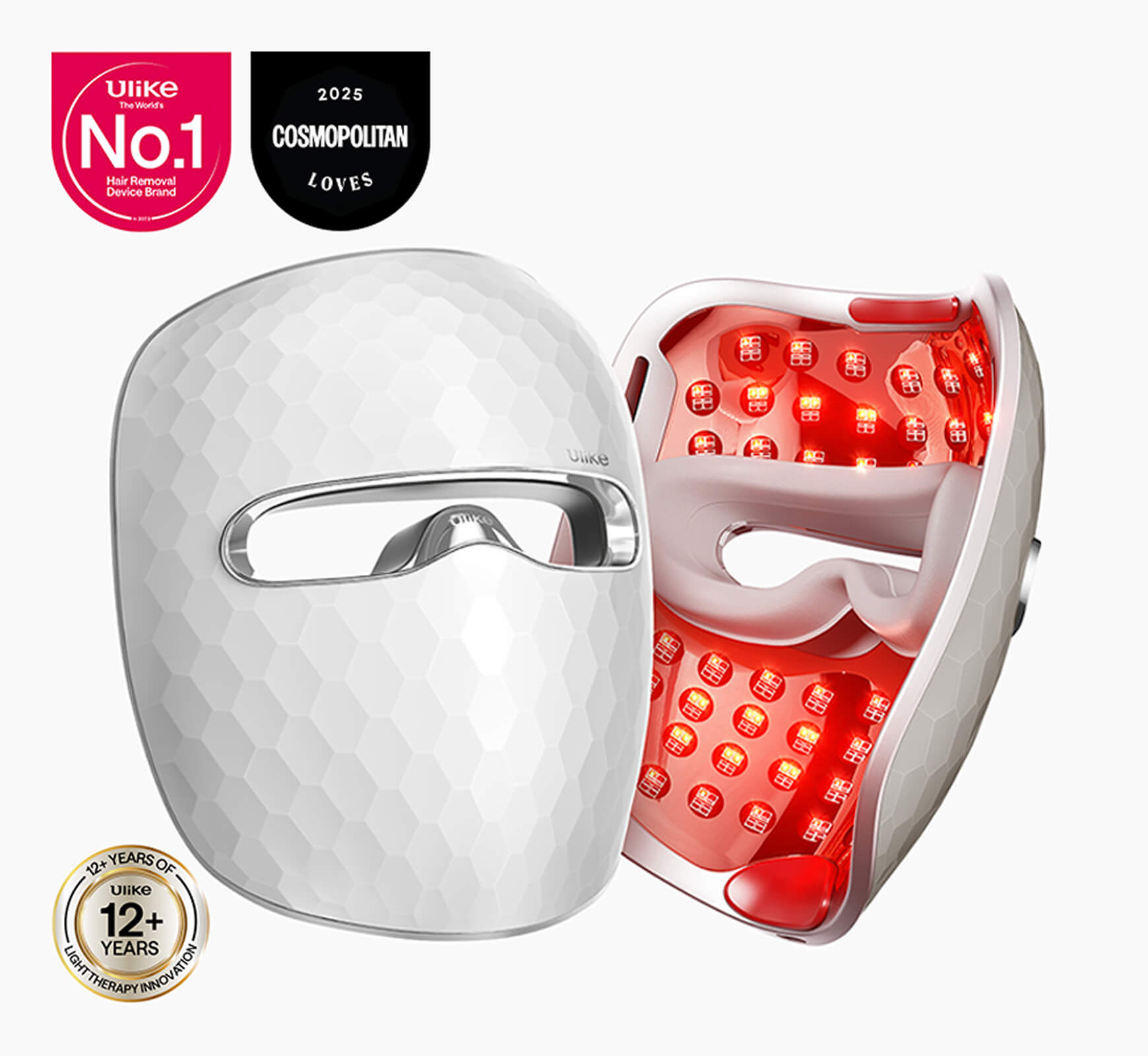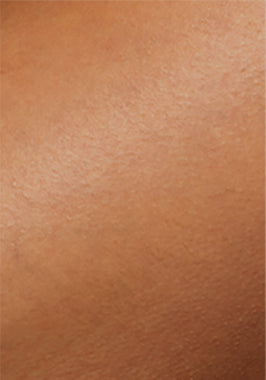
Is IPL Safe During Pregnancy? Guidance & Alternatives
Is IPL Safe During Pregnancy?
Pregnancy can flip your whole routine upside down, even the little things like how you manage unwanted hair. If you’ve been using an at-home IPL device for a while, it probably feels like part of your self-care ritual. So it’s natural to wonder, “Is IPL safe during pregnancy?”
The honest answer is that medical professionals and skin experts generally say no. Not because IPL has been proven harmful, but because there just isn’t enough research to guarantee it’s safe for you or your baby. And when it comes to pregnancy, most doctors agree it’s better to pause anything that could carry unknown risks.
In this guide, we’ll break down what IPL actually does, why pregnancy makes your skin more sensitive, what the experts recommend, and the safer alternatives you can use until it’s the right time to go back to light-based treatments.

Understanding IPL Hair Removal Technology
To figure out why doctors are cautious about IPL during pregnancy, it helps to know how the technology works.IPL, or Intense Pulsed Light, uses bursts of light that target the pigment in your hair. The light turns into heat, which weakens the follicle so it struggles to grow new hair. Over time, this means less regrowth and smoother skin.
That might sound similar to laser hair removal, but there’s a difference. Lasers use one focused wavelength of light, while IPL uses a broader spectrum. Both aim for long-term reduction, but IPL devices are often designed for home use, which makes them more accessible.
Compared to your usual hair removal methods:
- Shaving only cuts the hair at the surface, so regrowth is fast.
- Waxing pulls hair out at the root, but it doesn’t slow down future growth.
- Creams dissolve hair but can cause irritation, especially on sensitive skin.
- IPL helps reduce regrowth over time, which is why so many people love it.
Normally, IPL is safe for most people when used correctly, but pregnancy brings changes in your skin and hormones that can make the usual rules a bit different.

Is IPL Safe in Pregnancy?
So, here’s the big question: is IPL safe to use while you’re pregnant? The short answer is no, and that’s not just personal opinion. Dermatologists, obstetricians, and professional beauty organisations all recommend avoiding IPL (and laser treatments) during pregnancy.
Why? It’s not because anyone has proven IPL is dangerous. The truth is, there simply isn’t enough research. No studies have followed pregnant women using IPL to see how it might affect them or their babies, and that lack of data makes doctors cautious. When there’s uncertainty, the safest option is to press pause.
There are a few specific reasons behind the advice:
- Pregnancy hormones make your skin more sensitive, which means treatments that were fine before may now cause irritation or pigmentation changes.
- Lack of safety data means no one can guarantee IPL won’t have side effects for your baby.
- Professional liability also plays a role. Reputable clinics and salons won’t treat pregnant women with IPL because their insurance doesn’t cover it.
In other words, the advice to avoid IPL during pregnancy isn’t about proven harm. It’s about protecting you and your baby when there’s too much uncertainty.
Lack of Scientific Data on IPL During Pregnancy
Here’s the tricky part: there just isn’t much research on IPL use during pregnancy. If you go looking for scientific studies, you’ll find almost nothing in peer-reviewed journals. That’s not because doctors aren’t interested, but because running clinical trials on pregnant women raises big ethical concerns.
Researchers avoid testing treatments with unknown risks on expectant mothers, which means there is no solid evidence to say IPL is safe, but also no proof that it causes harm. The result is a big question mark, and that is exactly why professionals recommend avoiding it.
On top of that, pregnancy itself makes research complicated. Hormones are constantly changing, skin reacts differently at each stage, and long-term studies would be expensive and difficult to carry out. All of these hurdles mean the medical community is unlikely to ever have clear data about IPL safety in pregnancy.
Until that changes, dermatologists and doctors rely on the precautionary principle. In other words, when the science is missing, it is better to be safe and press pause on IPL until after pregnancy.
Potential Exceptions for Medical Use of IPL During Pregnancy
While the general rule is to avoid IPL during pregnancy, there are a few rare cases where a doctor might consider it. These situations are unusual and usually tied to medical needs rather than cosmetic ones. For example, some women struggle with severe skin conditions like stubborn acne, unusual hair growth, or pigmentation issues that affect their well-being.
Even in these cases, IPL would only be used under close medical supervision. A dermatologist and obstetrician would both need to agree that the benefits outweigh the risks, and treatments would likely be adjusted with lower settings and extra monitoring.
For most people, these exceptions do not apply. If you are pregnant and thinking about IPL, the safest option is to wait. If you have a skin concern that feels overwhelming, talk to your healthcare provider about gentler, pregnancy-safe treatments you can use until after delivery.

Alternative Hair Removal Methods Safe During Pregnancy
Putting your IPL on pause doesn’t mean you’re stuck. There are still plenty of ways to feel comfortable and keep up your grooming routine, it just takes a little adjusting.
Shaving
Most mums-to-be stick with shaving because it’s quick, safe, and familiar. A fresh razor and some fragrance-free shaving cream usually do the trick. If reaching becomes awkward later on, an electric shaver can make things easier and reduce the chance of little nicks.
Waxing
Waxing is another option, though it might sting more than you remember because pregnancy hormones can make your skin extra sensitive. If you do wax, start with smaller areas to see how your skin reacts. For trickier spots like the bikini line, many women find it easier to let a professional handle it.
What’s best to avoid
There are a few methods worth skipping until after pregnancy. Hair removal creams can be harsh on already sensitive skin, and the strong smell alone is often enough to put people off. IPL and laser are better saved for later, once your body has settled, and hot waxing in delicate areas can be too uncomfortable when your skin is more reactive.
Instead of overcomplicating things, choose methods that feel kind to your skin and easy to manage. Your body is already doing something incredible, so hair removal should be simple, not stressful.
Getting Back to IPL After Pregnancy
Let’s be honest. No one looks forward to the sharp sting of a bikini wax. However, the pain is brief and typically only lasts for a few seconds during the actual waxing process. Most UK women rate bikini wax pain as 6-8/10 on the pain scale, depending on their pain threshold and the sensitivity of the area. Areas like the inner thighs and the bikini line can be more painful, while the outer areas may feel less intense.
Pain varies from person to person, but most women in the UK find that after the initial shock, the discomfort subsides quickly, leaving only smooth, hair-free skin. If you're particularly sensitive, it can be helpful to understand when the pain is most likely to occur and how to manage it.
- Hormones need to settle. During pregnancy, high oestrogen levels often make your hair grow thicker. After birth, hormone changes can cause sudden shedding or new growth patterns.
- Your skin needs recovery time. Whether you had a natural birth or a caesarean, your body is still healing and may react differently to treatments.
- Better results. Once your cycle returns to normal, IPL tends to work more effectively.
When you’re ready to start again, treat your skin gently: do a patch test first, moisturise regularly, and avoid tanning before sessions. If anything feels off, check in with your dermatologist or IPL technician before continuing.
Think of it this way: IPL isn’t going anywhere, and giving your body a little time to recover first will only make the results smoother and more consistent.

Practical Tips for Hair Removal While Pregnant
Pregnancy changes the way your body feels and reacts, and that includes your skin. If you want to stay comfortable while keeping up with hair removal, these tips can help:
Pay attention to your skin
Hormones may make it more sensitive than usual. If a method causes redness or irritation, switch to something gentler.
Keep your routine simple
This is not the best time to test new products or complicated methods. Stick to what you already know, like shaving or light waxing.
Pick skin-friendly products
Choose fragrance-free gels, soothing aloe vera, or natural oils. These options are kinder to sensitive skin.
Ask for help when needed
As your bump grows, certain spots become harder to reach. An electric shaver or a salon visit can make things easier.
Prioritise safety
IPL and laser should wait until after pregnancy. Think of it as pressing pause, with the reassurance that you can return to longer-lasting treatments later.
With small adjustments, you can stay comfortable and confident throughout your pregnancy without putting your skin under unnecessary stress.
FAQ: Is IPL Safe During Pregnancy?
Is IPL safe during pregnancy?
No, IPL is not considered safe during pregnancy. There is not enough research to confirm its effects on the baby, and hormonal changes can make your skin more sensitive. Most experts recommend waiting until after pregnancy to resume treatments.
What hair removal methods are safe while pregnant?
Shaving and gentle waxing are the most commonly recommended options during pregnancy. They are safe, effective, and easy to manage with the right products. Hair removal creams are best avoided, as the chemicals can irritate sensitive skin and the strong odour may be unpleasant.
When can I restart IPL after pregnancy?
You can usually restart IPL treatments two to three months after giving birth. If you are breastfeeding, it may be best to wait until your hormones settle and your skin feels less sensitive. Always patch test first and consult a professional if unsure.
Can hair grow differently during pregnancy?
Yes, many women notice thicker or faster-growing hair during pregnancy due to higher oestrogen levels. After birth, hair growth often slows down or even sheds as hormones return to normal. This is one reason why IPL tends to give better results once your cycle has stabilised.
Is laser hair removal safer than IPL during pregnancy?
Neither IPL nor laser hair removal is recommended while pregnant. Both use light energy that has not been proven safe for unborn babies, and pregnancy can make your skin react unpredictably. It is safest to wait until after pregnancy before trying either treatment.
Is IPL Safe During Pregnancy? The Takeaway
Pregnancy is full of changes, and your hair growth is just one of them. While it can be tempting to look for long-term solutions like IPL, waiting until after your baby arrives is the safest choice. In the meantime, gentle methods such as shaving or light waxing can help you feel more comfortable.
Once your body has had time to recover, IPL can be a practical way to manage hair growth again. Many women prefer an at-home device like Ulike IPL because it fits easily into a busy routine and gives lasting results without constant salon visits. If smoother skin with less upkeep sounds appealing, Ulike is worth exploring once it is safe to use again.
For now, focus on simple, safe options that feel good for your skin. IPL will still be there when you are ready to pick it up again.
Related Readings

Hair Removal Aftercare Guide: What to Do After

Fun Activities for Couples That Actually Work in Real Life
